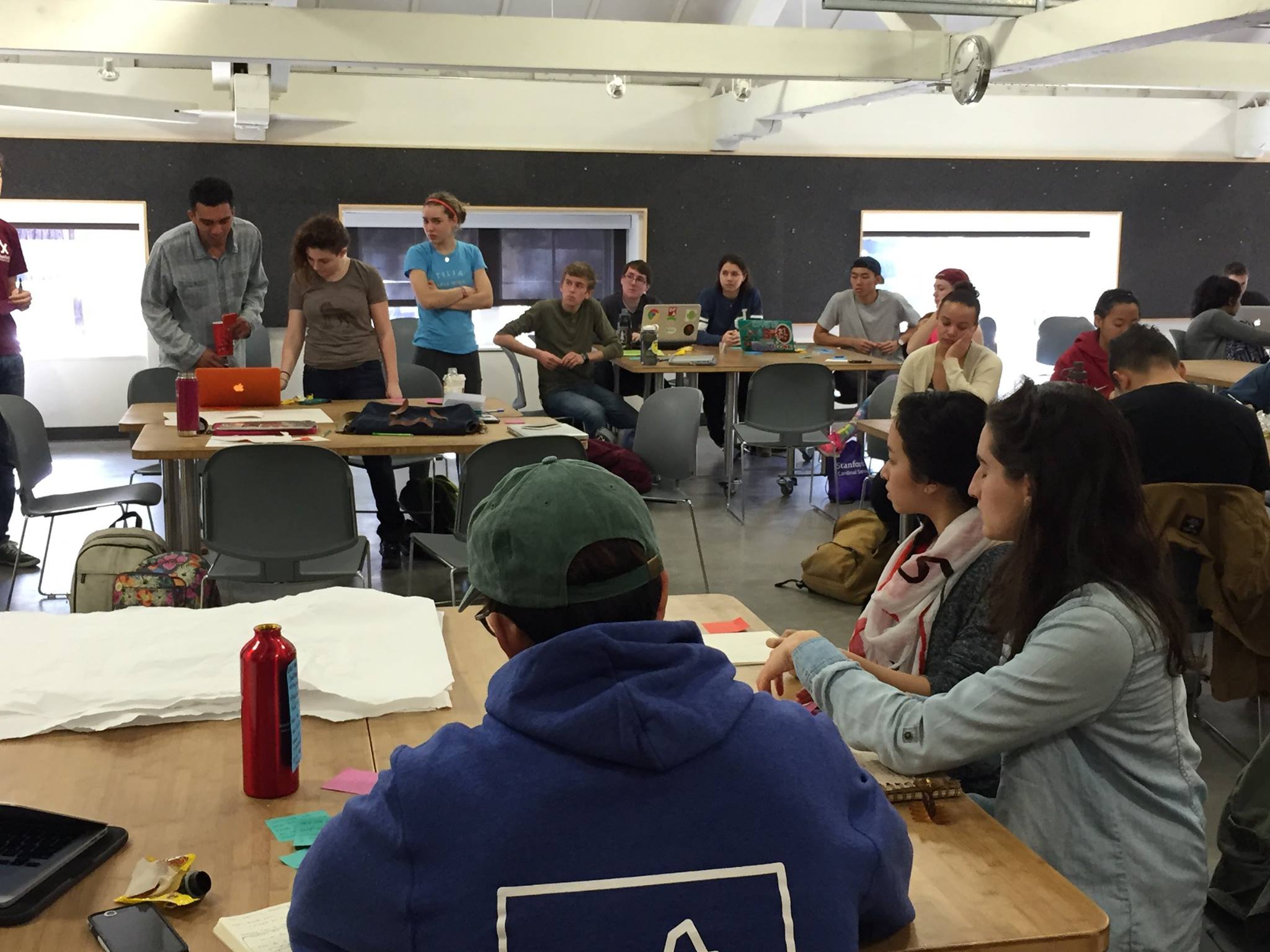Design for America (DFA) begins the recruiting process for its new project teams this week in hopes of bringing a combination of social impact and design to campus. DFA is a student-run initiative that uses the design thinking process to find solutions to local social issues.
“[The design thinking process] is rooted in empathy and learning to get to know the people you are solving [the problem] for,” said DFA member Grace Greenwald ’19. “We do a lot of interviewing and research.”
The 2016-2017 winter quarter teams focus on a range of social impact issues, all relevant to the area encompassing Stanford and Palo Alto.
The project team led by Greenwald is called IgnitED, which is focused on helping teachers implement hands-on activities within classrooms.
“We are working with an outside company, IgniteSTEM, a nonprofit that increases teacher exposure to problem solving,” Greenwald said. “We asked them what their two biggest problems were, and the two things we got were while they mostly focused on STEM subjects, they said it was much harder to do hands-on projects with the humanities. The other thing is that it’s hard for public school teachers to implement projects into their schedules.”
Through working with high schools in the East Palo Alto area, IgniteED hopes to find easier ways for teachers to use project-based learning in the humanities.
DFA consists of teams that are led by two project leaders with three or four additional team members. The two team leaders pick the theme for each project, and the team then works together to find a problem to pitch a solution. Each team begins working at the beginning of each quarter and will continue to work together until the end of the quarter.
DFA projects are intended to last and impact the real world. One such example was launched by a DFA team, Kids with a Cause, last year. Kids with a Cause emphasized making STEM fields more engaging for students through hands-on activities in addition to using art to explore STEM related topics. The team created a circuitry kit that involved household items and cost only two dollars to construct, making the kit affordable for schools.
A number of other new DFA project teams also focus on impact in local schools, including FEM (Female Empowerment Machine), which will work in schools in East Palo Alto to rethink gender socialization and consider why girls often do not think of themselves as leaders.
Other teams focus on impact within the Stanford community itself, including Food For Thought, aiming to figure out how to help overextended and overcommitted Stanford students to maintain healthy eating habits. Another, Stop the Slump, seeks to tackle and reduce the effects of the sophomore slump.
While each team and project is different, DFA creates a community through the similarities of problem solving and design.
“Everyone had a lot of the same roadblocks and struggles that could also help each other find different avenues to overcome those roadblocks. A lot of times, it’s hard to fix the problems you pick, but having people to talk it through with the entire quarter is really helpful to eventually make you impact,” Greenwald said.
Contact Arielle Rodriguez at arielle3 ‘at’ stanford.edu.
